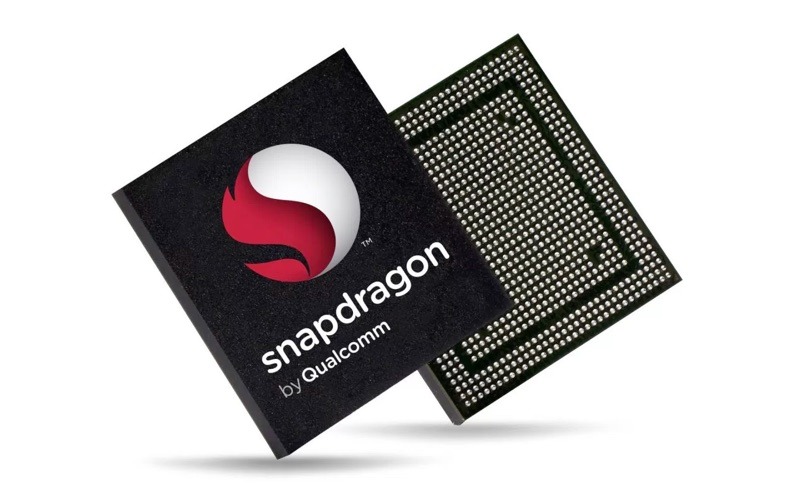Microsoft's ARM-powered laptop initiative could offer users exceptional battery life that could last for multiple days on a single charge, possibly paving the way for Apple to do the same with its more powerful A11 Bionic processor — should it so choose.
Pete Bernard, Principal Group Program Manager for Connectivity Partners at Microsoft, confirmed to Trusted Reviews during the Qualcomm 5G Summit in Hong Kong that the ARM notebooks can be expected to have a long battery life. Though final numbers haven't been released, Bernard advised the battery life is "beyond our expectations."
"We set a high bar for [our developers], and we're now beyond that. It's the kind of battery life where I use it on a daily basis. I don't take my charger with me. I may charge it every couple of days or so. It's that kind of battery life," claims Bernard. "I would consider it a game-changer in terms of the way people have experienced PCs in the past."
Microsoft initially announced the ARM-based notebook program in December 2016, with the aim of providing a full Windows 10 experience on the Snapdragon 835 chipset, as used in Google's Pixel 2 and the Samsung Galaxy S8 in the United States. In theory, the scheme could lead to the creation of thinner and lightweight notebooks with longer battery lives, while still retaining the processing performance.
Only three manufacturing partners will be involved in the scheme at first: HP, Asus, and Lenovo. Microsoft and Qualcomm hinted during the event that more vendors will join in at a later date, with Bernard confirming "We've had some conversations with other OEMs too, for future devices, that are very exciting about bringing their own spin."
Qualcomm VP of Global Product Marketing Don McGuire revealed the use of Snapdragon 835 is only the start, advising the rollout of future chipsets will be made with "mobile PC" in mind. "You'll see an evolved roadmap with mobile PCs in it more definitively than in the past. You'll see an evolution of different tiers of devices," said McGuire.
Microsoft is already testing "hundreds" of the ARM-based notebooks at its headquarters, Bernard confirmed. "We have hundreds of these devices being used on a daily basis in Redmond."
Currently, Qualcomm and Microsoft expect to formally announce the notebooks before the end of this year, keeping to a one-year timeline set in December last year. "You'll be heading more from us over the next coming weeks regarding that," said McGuire.
Not the first time Microsoft has tried this
When the Surface tablet launched, there were two versions — the Windows RT version, and the full x86 Surface Pro line.
There's no reason to discuss the history behind Windows RT. Consumers didn't care for the lack of compatibility, and weren't interested in a Windows offshoot — in much the same way that they more recently weren't interested in a Windows Phone, and for many of the same reasons.
Early rumors about the ARM-powered laptop line suggested that Intel was going to include a X86 32-bit emulator when the units shipped. If the emulator works well, then that exterminates some the major issue with Windows RT — the ability to run software that users actually want to run. However, initial reports suggest that the emulator will only work with 32-bit software, and not 64-bit.
Microsoft hasn't had the need to do this with hardware architecture yet like Apple has — but have dealt with Windows compatibility issues between versions many times throughout the last three decades.
Apple and ARM
When Apple shifted to Intel for its hardware in 2006, CEO Steve Jobs said that they had been developing versions of OS X for Intel hardware in parallel with PowerPC for a long time. While there has been no code leaks definitively pointing to this with Apple's A-series ARM processors right now, it stands to reason that there is a similar effort under wraps in Cupertino.
But, iOS and macOS share a common code base in many respects. Apple's Metal is implemented on both operating systems, as is APFS. All that would remain would be backwards-compatibility measures similar to "Rosetta" allowing for PowerPC code to run on Intel processors, or a "fat binary" implementation that long-time Mac users are familiar with from the migration from 680x0 to PowerPC.
From a benchmark perspective, Apple's A11 Bionic processor is remarkably similar to the 13-inch MacBook Pro. It is also more power-efficient — and under Apple's control from a development standpoint from hardware, to firmware, all the way through the coding environment.
The new A11 Bionic processor has six cores, with the addition of two high-efficiency cores to the four in the A10 Fusion. For the first time, the A-series processor is also capable of asymmetric multi-processing, meaning that all six cores can be running simultaneously on one task — making it more suitable for a desktop or laptop environment.
Should Intel fall down, and fail to deliver compelling processors for computers especially on the low end, Apple could likely make the shift to the A-series ARM processor in very little time.
 Mike Wuerthele and Malcolm Owen
Mike Wuerthele and Malcolm Owen







-m.jpg)






 Charles Martin
Charles Martin
 Malcolm Owen
Malcolm Owen
 William Gallagher
William Gallagher

 Christine McKee
Christine McKee
 Wesley Hilliard
Wesley Hilliard

 Andrew Orr
Andrew Orr








56 Comments
Is there such thing as "Cooks Law"? It would state that Mac Hardware is always at least 2 years behind PC hardware in processing power and 4 years in graphics.
MSFT seems to be going all in on the PC form factor.
The world has changed around MSFT and its finding that there are more and more out there who get by entirely on tablets, and I’d imagine the great majority of such users, at least those who once used a Laptop, are getting by entirely on a tablet called iPad.
That’s my story; I was in the software game for 26 years, designing software and building software companies. These days, and for the last two years, I drag my aging MacBook Air out of the closet only to run TurboTax Premier one day each year. The other 364 days I manage my 7-figure self-directed stock and options portfolio entirely from my iPad and iPhone. Most of my friends don’t even realize I own a laptop computer.
So MSFT builds hybrids, which are more Laptop than tablet, and now laptops with longer battery life and perhaps a few ounces lighter. Okay, sure... there’s still a market for such out there, and I’m sure they’ll hold back the tides for a few more years with this strategy. While Apple consolidates iOS as the standard platform for a new more mobile world. (see GE and Apple Form Deep Partnership).
"All that would remain would be backwards-compatibility measures similar to "Rosetta" allowing for PowerPC code to run on Intel processors" - there's an important difference here: Rosetta worked because the x86 processor was a lot faster than the PowerPC users were used to, so they didn't perceive much of a slowdown. But as you mentioned yourself, the A11 is "only" about on par with a low-end x86 i7 from a pure performance perspective - so with emulation, a user would definitely notice a degradation. Mitigating things (a lot?) are that most apps probably spend the majority of their CPU cycles inside Apple's APIs - and when they make a call into Apple's code, that can run at native speeds/non-emulated.